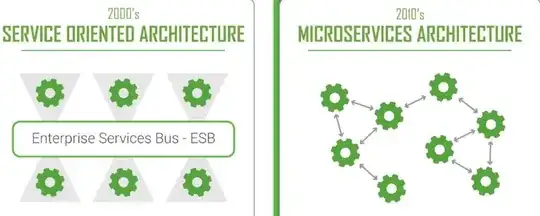So I'll take the context of Red Hat FUSE as an example because this is what I know. I know that Apache Camel which is the library on which is based FUSE doesn't consider itself an ESB (http://camel.apache.org/is-camel-an-esb.html) but that they consider that Apache ServiceMix can be considered an ESB. But according to my research it seems that an ESB is a solution that use the enterprise integration pattern and is designed to solve problems related to integration between applications in an enterprise.
So I guess there is two questions:
If I use an ESB tool like Apache ServiceMix to develop a simple application which isn't in any way done to integrate applications together but is a regular REST API, is it still an ESB?
And if develop a solution with multiple independent applications that are doing integration tasks between multiples systems, can I still call it an ESB?
